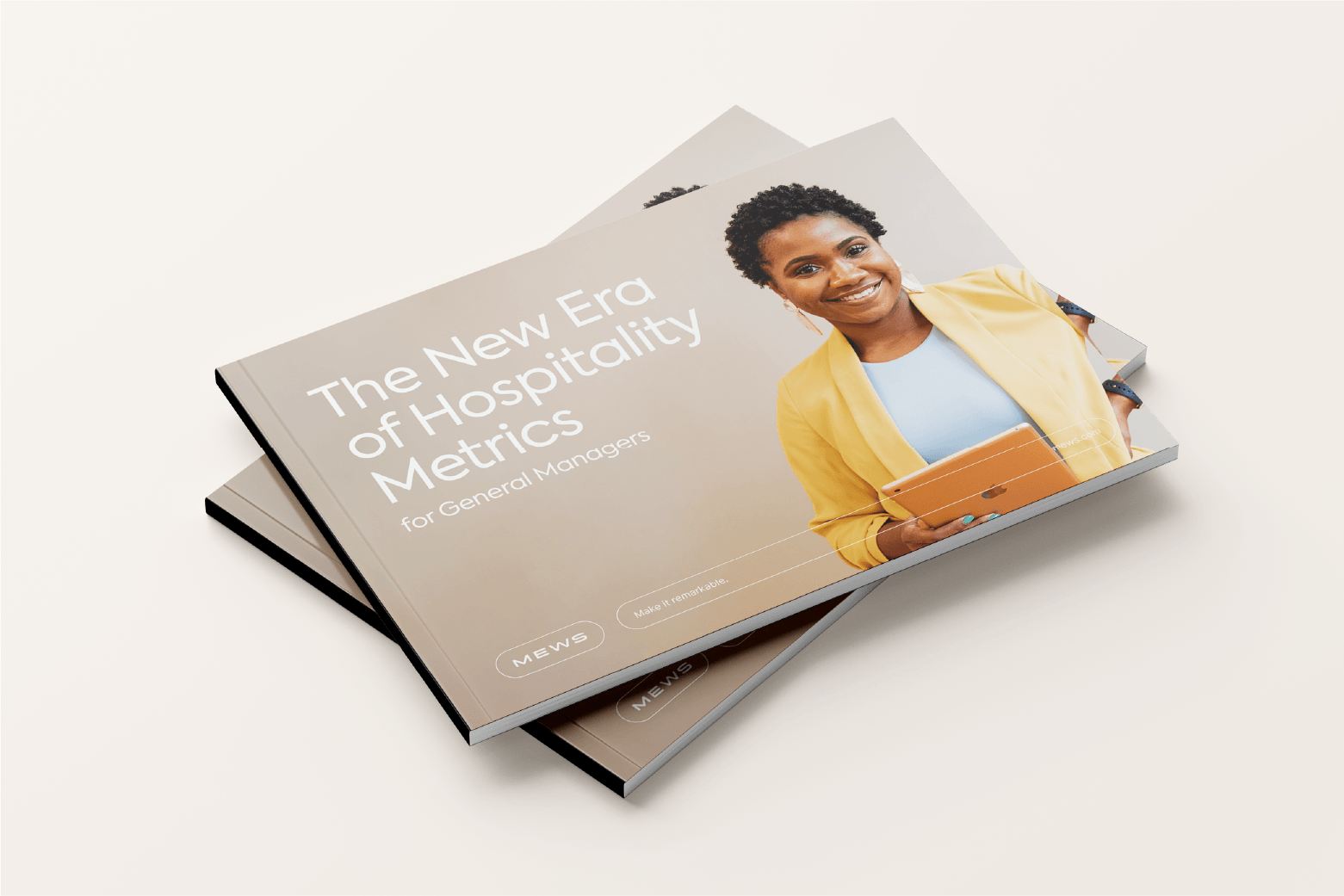If you’re a General Manager, you already have a good sense of how your property is performing. Through a combination of experience, intuition and walking around day-to-day, you have a gauge of how busy you are, the happiness of your staff and the experiences of your guests.
That’s a great start, but the devil’s in the data.
Tracking the right hotel metrics will fine-tune your impressions and give you concrete information on where you’re performing well and where there’s still room for improvement. Some of the results may even surprise you.
As a GM, you’re required to have oversight on all facets of your business, and in an industry as complex as hospitality, it isn’t always easy. Data empowers you to make operational decisions. Knowing which metrics are the most important, therefore, is vital.
Table of contents
The must-track areas for hotel metrics
There’s a tendency to obsess over a few traditional hospitality metrics. We don’t want to name names, but we’re talking occupancy, ADR and RevPAR. In today’s tech-enabled world of blended stays and experiential travel, these set your sights too narrow.
They can still be useful (largely when it comes to benchmarking your performance against competitors) but they represent only a tiny portion of the rich ocean of data available to you. Here are some of the main areas you should be considering.
Operational efficiency
Efficient operations are the backbone of any well-functioning hotel. Tracking metrics related to operational efficiency, such as room turnover time, guest acquisition cost and user disengagement, helps you identify bottlenecks and implement solutions promptly. This not only improves the guest experience but also contributes to cost savings and revenue optimization.
Guest satisfaction
Tracking guest happiness is a no-brainer, but many businesses focus on revenue and occupancy to the point where customer satisfaction becomes an afterthought. General Managers need to keep a keen eye on customer satisfaction metrics, including online reviews, ratings, and guest feedback. By monitoring these indicators, you can identify areas that need improvement, celebrate successes, and ultimately enhance the overall guest experience.
It’s probably too time-consuming to manually track your scores from a variety of channels. Choosing a great reputation management solution will save you loads of time and also help you monitor performance. Here’s everything you need to know about Google Hotel Reviews, as well as the best strategies for hotel reputation management.
Revenue management
Of course, we’re all here to make money as well. That’s exactly why ADR and RevPAR are no longer the best metrics for revenue. RevPAM (revenue per available square meter) allows you to analyze rooms only (which rooms have the best utilization to revenue ratio) or to track your entire hotel space. It’s a holistic approach that captures more touchpoints like upselling and F&B, while encouraging your team to think about more ways to diversify and maximize revenue.
And instead of ADR, consider daily guest spend. When you look at ADR, all you really see is what the average guest paid to sleep in your hotel last night. But if you know that the guest purchased food, drinks and a parking spot, there are many more interesting rate management ideas to explore.
Staff engagement
A motivated and engaged team is essential for delivering exceptional guest experiences. Tracking metrics related to employee satisfaction, turnover rates, and training effectiveness will help to foster a positive work environment. It’s also good to calculate and track staff turnover costs; it probably won’t be a pleasant figure, but will help bring home to everyone the importance of a happy team.
Sustainability and CSR
Sustainability isn’t a trend. It has become an expectation for whole generations of travelers. Measuring sustainability is not only a way of showing off your eco-credentials to guests, but it’s certain to have positive knock-on effects for your business. This is usually in the form of cost-savings and waste reduction around areas like F&B, energy and utilities.
Your guide to the new era of hospitality metrics

Technology has changed not only what’s possible, but what’s measurable. A new generation of hospitality metrics has emerged and hoteliers who adapt fast stand to see the biggest rewards.
So, what are these new metrics exactly? Our guide, The New Era of Hospitality Metrics for General Managers, explores the 11 must-follow metrics for a successful business. Some of them are mentioned in this article, but as for the rest... Well, don’t you want to find out?

2026 Hospitality Industry Outlook
Download now
Table of contents
Hospitality hot takes straight to your inbox



.webp)